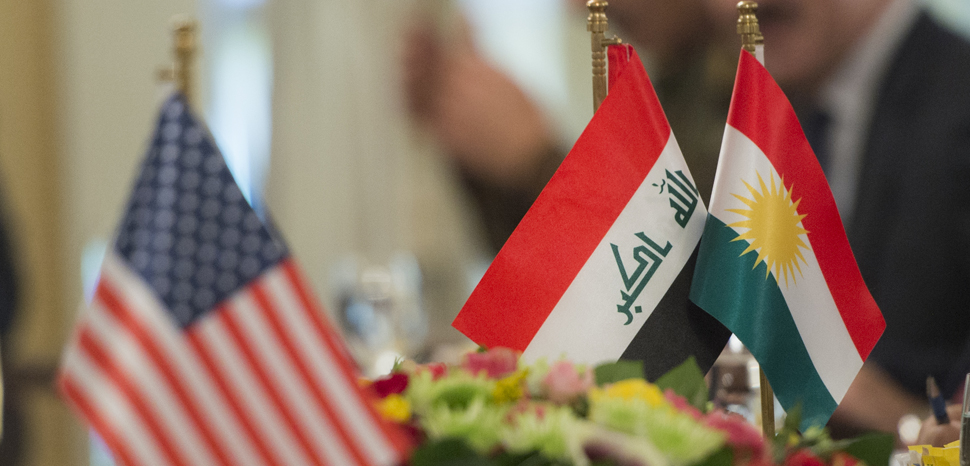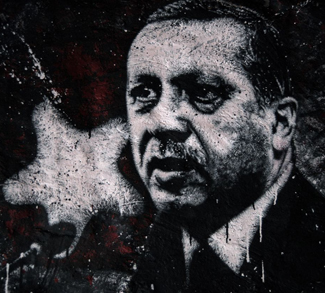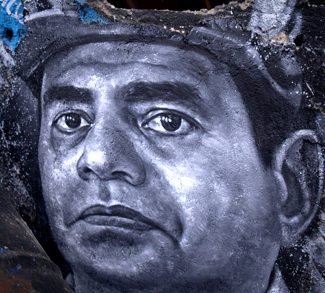In a new development that the region has never faced before, on the first of October, a barrage of missiles was fired at the airport of Erbil city, a key strategic site for the territory. The attack seemed levied as a threat toward facilities belonging to the US and located near the airport. Amid that critical and confusing moment, many charges were declared asserting that the Shia popular mobilization forces (PMF), backed by Iran, were behind these acts of terrorism.
Numerous hypothesizes emerged to explain the incident. They all attempt to confirm that PMF was the main beneficiary. Commentators pointed out that PMF had done the same in Baghdad by bombarding the American embassy and Baghdad airport, and thus the militias had to be behind the targeting of Erbil airport in order to intimidate the Americans.
At the same time, virtual platforms, media outlets, and social networking sites flooded with similar assumptions. They affirmed that those rockets came to punish the Iranian-Kurdish opposition, which is headquartered near Erbil airport. The theory goes that the PMF, which is considered an Iranian ally in Iraq, was involved in the matter, and it was sending a clear message to Kurdish opposition groups, whom have become a growing threat in the border region between Iran and IK, that they would no longer be able to freely operate in this part of Iraq.
Within the same context, another interpretation insisted that the bombing of the airport coincided with talks on a withdrawal of American diplomats from Baghdad to Erbil. The promoters of that assumption were also trying to strengthen accusations toward the PMF in light of its antagonistic relations with the Americans. Broadly, the PMF wants to demonstrate that all of Iraqi geography has become unsafe for American troops and diplomats. Nevertheless, the official government in Baghdad described the attack as a terrorist offensive.
Various partisan figures in Erbil announced they would defer to international society to identify and prosecute the perpetrators. This suggests that the above assumptions remain questionable. Up until now, official parties inside IK and Baghdad have not given any sure information through which to confirm or deny any of the speculation.
Baghdad and Erbil tried to establish their own narratives through, where they allege that another rival might have been behind the airport attack. The motive of such a player would be to create a military confrontation between the Kurdish forces (Peshmerga) and the PMF. Thus, the assumption is that Da’ish (Islamic State) would be the party with the most to gain from instigating this kind of chaos.
The presidency of IK did well when it released an official statement through which it stated: “There is an urgent need for the Kurdish forces, the Iraqi army, and the PMF to work together to deal with this threat.”
In sum, the airport attack is a matter of great concern regarding the security situation in IK. Irrespective of who was ultimately behind it, there are now real signs that such attacks may become the rule rather than the exception going forward.
Cooperation is key
The Erbil airport attack has highlighted the level of intersection between the security issues in this region and encroachments by outside players. The result has been increasing instability in the provinces that neighbor Iraqi Kurdistan. Anarchy in these cities can tell us a lot about the future security outlook in the region.
Recently, Iran and Turkey have announced their mutual agreement to chase fighters from the Kurdish Workers Party (PKK) and its affiliated groups, such as the party of Free Life, into the north of Iraq. This, as expected, will result in violating Iraqi sovereignty and encourage open conflict in the affected areas. Thus, IK will face more social and political mobilization and, in the end, this will further increase the security stakes in the region.
Furthermore, intelligence affirms that Da’ish is still active in the provinces surrounding the Kurdish area. The group still has the ability to recruit fighters and supporters. It still has sleeper cells there, which it has activated to kill innocent people and security forces. It follows that it can surface again and threaten IK. The lack of consensus between Baghdad and Erbil in securing the situation in the cities geographically circling the IK an additional factor that could impact the security of Kurdistan.
In a more optimistic development, the latest agreement signed between Erbil and Baghdad to normalize the situation in Sinjar city, and their mutual work to ensure the security in this city, suggests the possibility that some of the security threats facing IK can be alleviated with proper coordination between the national and regional authorities.
Warehouse explosions
Though not classified as terrorist attacks, the blasts at various depots in IK are viewed as a source of concern for many observers. They have occurred in some of the region’s largest cities: al- Sulaimani and Erbil.
The explosions have typically been linked to physical circumstances. Iraq in summer faces extremely high temperatures. accompanied by generally poor conditions for storing weapons and ammunition. Such conditions led to the destruction of over 40% of a military depot located in Erbil in 2018. Several weeks ago, the same thing happened in al- Sulaimani when it experienced a huge explosion in one of the storehouses attached to the Peshmerga.
In most of these cases, locals are scared. Many reports highlight how fragments from the explosions reach their residences. Given how these explosions have become common, a sort of negative resentment has started to rise among inhabits who believe, over the long-term, that they are no longer safe. It is not surprising that some of them fear their cities might succumb to the same kind of explosion that Beirut city experienced months ago. They know that the presence of such depots near the Erbil airport might make for an attractive target for factions seeking to destabilize the region.
In turn, there are worries that the cities of IK will enter into the heart of the zero-geopolitical game taking place now across the wider political and security landscape of Iraq. Looking ahead, Erbil could increasingly become the target of actors who are concerned about IK’s growing closeness to Washington.
The views expressed in this article are those of the authors alone and do not necessarily reflect those of Geopoliticalmonitor.com or any institutions with which the authors are associated.




